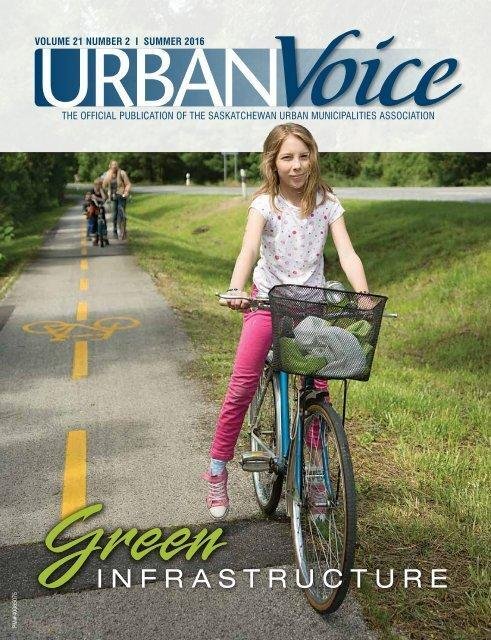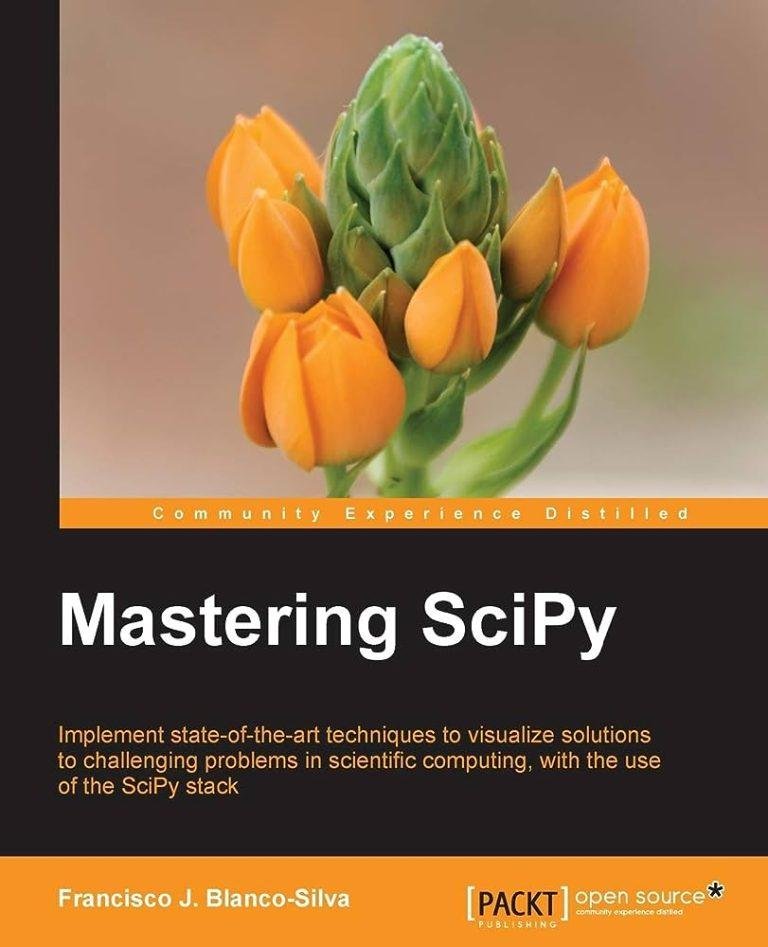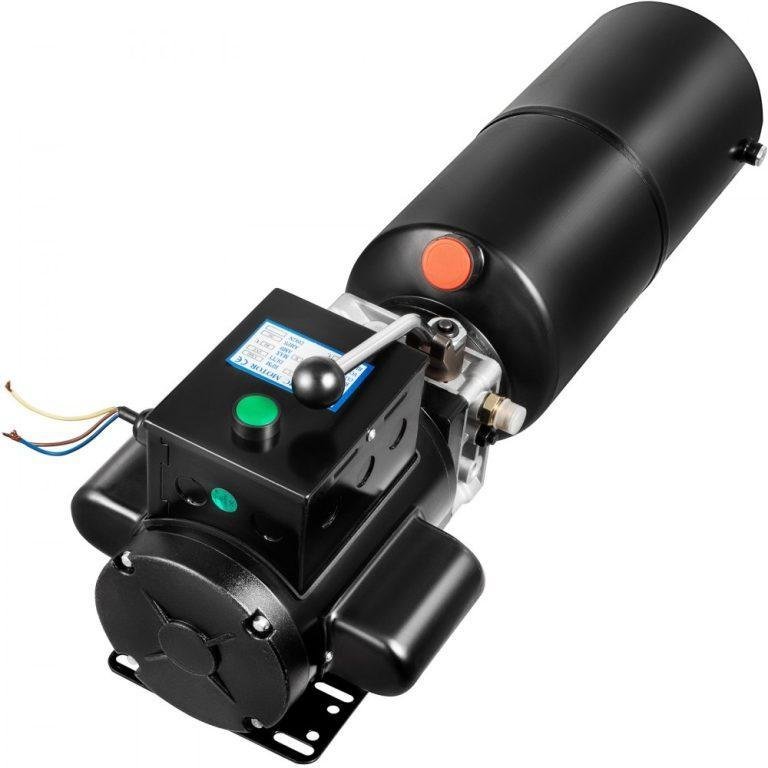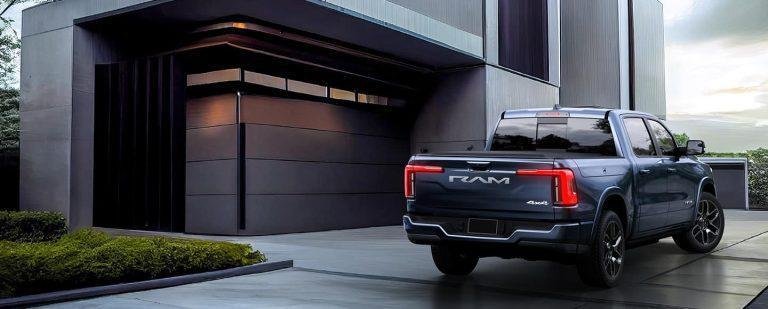A trailer hitch makes noise due to loose bolts or lack of lubrication, causing metal-on-metal contact. This noise can be fixed by tightening the bolts or adding lubrication.
Trailer hitches often make noise when there is inadequate clearance between the hitch and the trailer, resulting in friction and rattling sounds. These noises can be annoying and distracting while driving, and potential solutions include using anti-rattle devices, adjusting the height of the hitch, or checking for any misalignment.
Regular hitch maintenance and inspections can help prevent noise issues and ensure a smooth and quiet towing experience.

Credit: store.lci1.com
Identifying The Causes Of Excessive Noise
Excessive noise from your trailer hitch can be caused by various factors, including loose components, improper lubrication, worn-out bearings, or inadequate weight distribution. Identifying the root cause of the noise is crucial in order to address the issue and ensure a smooth and quiet towing experience.
If you’re wondering why your trailer hitch is making so much noise, there could be a few potential causes. Identifying these causes will help you address the issue and enjoy a quieter towing experience. Here are three common culprits:
Loose Hitch Ball Mount:
- The hitch ball mount connects your trailer to your vehicle’s hitch receiver.
- A loose hitch ball mount can cause rattling and excessive noise during towing.
- Check if the hitch ball mount is properly secured to the hitch receiver.
- Tighten any loose bolts or screws to eliminate noise and ensure a secure connection.
Worn Trailer Coupler:
- The trailer coupler is responsible for connecting the trailer tongue to the hitch ball.
- Over time, the coupler can wear down, leading to noise and potential safety concerns.
- Inspect the trailer coupler for signs of wear, such as rust or cracks.
- If necessary, replace the trailer coupler to eliminate noise and maintain a secure connection.
Insufficient Lubrication:
- Lack of proper lubrication can result in friction between the hitch components, leading to noise.
- Regularly lubricate the hitch ball, coupler, and other moving parts.
- Use a high-quality grease or lubricant recommended by the manufacturer.
- Applying lubrication will reduce friction, minimize noise, and extend the life of your trailer hitch.
By identifying the causes of excessive noise in your trailer hitch, you can take the necessary steps to eliminate the annoyance and enjoy a smoother and quieter towing experience. Don’t let noise overshadow your trips—check for a loose hitch ball mount, inspect the trailer coupler for wear, and ensure proper lubrication for silent and secure towing.
Solutions For Quieting A Noisy Trailer Hitch
If your trailer hitch is making a lot of noise, there are solutions available to help quiet it down. From using a hitch silencer to adding rubber isolators, these options can effectively reduce the noise and enhance your towing experience.
Are you tired of the annoying noise your trailer hitch makes while driving? Don’t worry, you’re not alone. Many trailer owners face this issue, and luckily, there are several solutions to help quiet down your hitch. In this section, we will explore three effective methods to solve this problem: tightening the hitch ball mount, replacing the worn trailer coupler, and applying lubrication to moving parts.
Tightening The Hitch Ball Mount:
- Inspect the hitch ball mount and ensure it is securely attached to the trailer hitch receiver.
- Use a wrench or socket set to tighten the bolts or nuts that hold the hitch ball mount in place.
- Check for any loose connections between the mounting hardware and the trailer hitch receiver.
- Make sure the hitch ball is properly tightened onto the hitch ball mount using the recommended torque specifications.
- Double-check the tightness of all the components to eliminate any potential rattling or movement.
Replacing The Worn Trailer Coupler:
- Examine the trailer coupler for signs of wear, such as rust or damage.
- If the coupler is worn or damaged, it’s time to replace it with a new one.
- Choose a trailer coupler that matches the hitch ball size and weight capacity of your trailer.
- When installing the new coupler, follow the manufacturer’s instructions for proper alignment and attachment.
- Ensure the trailer coupler is securely fastened to the trailer hitch ball, with no play or looseness.
Applying Lubrication To Moving Parts:
- Identify the moving parts of your trailer hitch that may be causing the noise, such as the hitch ball, hitch coupler, or sliding components.
- Use a high-quality lubricant specifically designed for trailer hitches. Silicone-based lubricants or dry lubricants are recommended to minimize dirt and dust buildup.
- Apply the lubricant to the moving parts as per the product instructions, ensuring complete coverage.
- Work the lubricant into the components by moving them back and forth.
- Reapply lubrication periodically to maintain smooth operation and minimize noise.
Applying these solutions will help you quiet down your trailer hitch and enjoy a more peaceful towing experience. Remember to regularly inspect and maintain your trailer hitch to prevent future noise issues. With these simple steps, you can say goodbye to that irritating noise and focus on the open road ahead.
Additional Tips For Preventing Hitch Noise
A few extra tips to prevent excessive noise from your trailer hitch include using lubrication, tightening the nuts and bolts, and using anti-rattle devices for a snug fit. These measures can help reduce the noise and provide a smoother towing experience.
One of the most irritating aspects of towing a trailer is when the trailer hitch starts making annoying noises. These noises can be bothersome not only for the driver but also for anyone else traveling in the vehicle. Fortunately, there are several steps you can take to prevent hitch noise and enjoy a smoother, quieter towing experience.
Here are some additional tips to keep in mind:
Check For Damaged Trailer Hitch Components
Inspecting your trailer hitch regularly is essential for preventing noise issues. Look for any signs of damage or wear on the various components of the hitch. If you notice any cracks, rust, or other forms of damage, it’s crucial to address these issues promptly.
Here are some key components to inspect:
- Receiver tube: Make sure the receiver tube that inserts into your vehicle’s hitch receiver is intact, without any cracks or deformations.
- Hitch pin: Check the hitch pin for signs of bending, corrosion, or any other damage.
- Safety chains: Examine the safety chains to ensure they are not worn out or damaged in any way.
- Coupler: Inspect the trailer coupler for any cracks or excessive wear that could lead to noise.
Adjust The Hitch Height
Improper hitch height can contribute to noise and rattling during towing. It’s important to have the hitch adjusted to the correct height for your specific trailer. Follow these steps to properly adjust the hitch height:
- Measure your trailer’s coupler height when it is level.
- Measure the height of your vehicle’s hitch receiver.
- Compare the two measurements and determine whether you need to raise or lower the hitch height.
- Use a hitch riser or drop to achieve the correct height alignment between the trailer and the receiver.
Use Anti-Rattle Devices
Utilizing anti-rattle devices is an effective way to minimize hitch noise. These devices work by reducing the play and movement between the trailer hitch and receiver, thereby reducing noise and vibration. Consider these anti-rattle options:
- Hitch tighteners: These devices attach to the hitch and exert pressure to eliminate any movement, reducing noise significantly.
- Rubber hitch isolators: Placing rubber isolators between the trailer receiver and hitch can help dampen vibrations and noise.
- Anti-rattle clamps: These clamps secure the connection between the hitch and the receiver, eliminating excess movement.
By implementing these additional tips, you can significantly reduce the noise produced by your trailer hitch. Regularly inspecting for damaged components, adjusting the hitch height correctly, and using anti-rattle devices will ensure a smoother and quieter towing experience. Take the necessary preventive measures to enjoy a peaceful journey while towing your trailer.
Extend The Lifespan Of Your Trailer Hitch
Keep your trailer hitch operating smoothly and quietly by extending its lifespan. Find out why your hitch is making excessive noise and discover ways to minimize it.
Trailer hitches are essential for towing loads, but they can also produce annoying noises that can disrupt your journey. If you’re wondering why your trailer hitch is making so much noise, it’s important to understand that wear and tear, lack of maintenance, or damaged parts can be the culprits.
But fear not! By following these steps, you can extend the lifespan of your trailer hitch and enjoy a smoother and quieter towing experience.
Proper Cleaning And Lubrication
Proper cleaning and lubrication are vital for maintaining a quiet and fully functional trailer hitch. Here are some steps to follow:
- Inspect for dirt and debris: Start by inspecting your trailer hitch for any dirt, dust, or debris that may have accumulated. Clean it thoroughly using a brush or a compressed air canister to remove any particles.
- Choose the right lubricant: Select a high-quality lubricant specifically designed for trailer hitches. Avoid using grease or oil-based products as they can attract more dirt and lead to further issues.
- Apply lubricant to moving parts: Apply the lubricant to moving parts such as the ball and receiver. Ensure that all parts are well-coated to reduce friction and noise.
- Remove excess lubricant: Wipe away any excess lubricant to prevent it from attracting dirt and grime.
- Regular maintenance: Make it a habit to clean and lubricate your trailer hitch regularly, especially before and after each towing job.
Regular Inspection For Wear And Tear
Regular inspection is crucial for identifying any signs of wear and tear on your trailer hitch. Here are a few steps to help you stay on top of maintenance:
- Check for loose bolts and screws: Examine all the bolts, screws, and fasteners to ensure they are tightly secured. Loose fasteners can cause rattling noises and compromise the hitch’s stability.
- Inspect the receiver and ball mount: Look for any signs of rust, cracks, or damage. These issues can affect the hitch’s performance and increase noise levels.
- Examine safety chains and wiring: Inspect the safety chains and wiring connections for any signs of wear or fraying. Replace them immediately if necessary to prevent accidents and reduce noise.
- Pay attention to hitch accessories: Check any additional hitch accessories, such as bike racks or cargo carriers, for proper installation and secure attachment. Loose or misaligned accessories can contribute to noise.
Replacing Damaged Or Worn Parts
When it comes to trailer hitches, timely replacement of damaged or worn parts is essential. Here’s what you should do:
- Identify damaged parts: If you notice any severely worn or damaged parts during your inspection, it’s crucial to replace them promptly. Common parts that may need replacement include the ball, ball mount, or safety pins.
- Use genuine replacements: Always opt for genuine replacement parts recommended by the trailer hitch manufacturer. This ensures compatibility and maintains the hitch’s performance and safety standards.
- Follow the manufacturer’s instructions: When replacing parts, carefully follow the manufacturer’s instructions to ensure proper installation. Incorrectly installed replacements can lead to noise and safety issues.
By following these simple steps, you can extend the lifespan of your trailer hitch while minimizing noise. Remember, regular cleaning and lubrication, along with thorough inspections and prompt replacements, are key to enjoying a quieter towing experience.
Ensuring Safe And Reliable Towing
When your trailer hitch makes excessive noise, it can be a cause for concern. This article explains the reasons behind the noise and provides practical tips for ensuring safe and reliable towing. Discover how to address this issue and enjoy a quieter towing experience.
Reducing The Risk Of Failures On The Road
- Regular inspection: Ensure your trailer hitch is in optimal condition by performing regular visual inspections. Look for any signs of damage or wear that may compromise its performance or safety.
- Tighten loose connections: Check all the connections and bolts on your trailer hitch to make sure they are properly tightened. Loose connections can lead to increased noise and potential failures while towing.
- Lubricate moving parts: Apply lubricating grease to all the moving parts of your trailer hitch, such as the ball mount and receiver tube. This helps reduce friction and noise, while also prolonging the lifespan of the components.
- Replace worn components: If you notice any signs of excessive wear or damage during your inspection, it is crucial to replace the worn components immediately. This will help maintain the integrity and functionality of your trailer hitch.
- Choose the right hitch type: Make sure to select a trailer hitch that is suitable for your towing needs. Different hitch types have varying capacities and features, so choose one that matches your trailer’s weight and towing requirements.
Improving Towing Stability And Control
- Distribute weight properly: Ensure that the weight of your trailer and its contents is evenly distributed. This helps improve stability and control while towing, reducing the chances of excessive noise or sway.
- Use weight distribution hitch: If you are towing a heavy load, consider using a weight distribution hitch. This hitch evenly distributes the weight between the trailer and the towing vehicle, improving stability, control, and reducing noise.
- Check tire pressure: Maintaining proper tire pressure on both your towing vehicle and trailer is essential for stability. Keep an eye on the tire pressure to ensure optimal performance and minimize the risk of noise or handling issues.
- Be mindful of speed: Be cautious of excessive speed while towing, as it can negatively impact stability and control. Adhering to recommended speed limits helps maintain better control over your trailer, reducing noise and potential safety hazards.
- Utilize trailer brakes: If your trailer is equipped with brakes, ensure they are properly functioning. Trailer brakes provide additional stopping power and help maintain control, reducing noise and potential accidents.
Minimizing Abrasive Wear On Hitch Components
- Clean after use: Regularly clean your trailer hitch components after each towing session. This removes any dirt, debris, or road grime that can cause abrasive wear on the surfaces, leading to increased noise and reduced functionality.
- Protect from corrosion: Use appropriate protective measures, such as applying a rust-resistant coating or using a hitch cover, to prevent corrosion. Corrosion can weaken the hitch components and introduce unnecessary noise and potential failures.
- Avoid excessive loads: Overloading your trailer hitch can put excessive strain on its components, leading to accelerated wear and increased noise. Always adhere to the manufacturer’s weight limits and towing recommendations for optimal performance.
- Follow recommended maintenance: Refer to the manufacturer’s guidelines for regular maintenance tasks specific to your trailer hitch model. Adhering to these recommendations can help prevent wear and tear, reducing noise and promoting longevity.
- Store in a dry environment: When not in use, store your trailer hitch in a dry location to prevent moisture exposure. Moisture can accelerate corrosion and wear on the hitch components, leading to increased noise and reduced reliability.
Myth 1: Noise Is Inevitable And Not Fixable
Noise is a common problem with trailer hitches, but it’s not inevitable or unfixable. There are various solutions available to reduce or eliminate the noise, ensuring a quieter and smoother towing experience.
Have you ever wondered why your trailer hitch makes so much noise? It’s a common concern among trailer owners, but the good news is that the noise is not inevitable and can actually be fixed. Don’t fall for the myth that you have to tolerate the annoying sounds that come from your trailer hitch.
With a bit of understanding and proper maintenance, you can reduce or even eliminate the noise altogether.
Explanation Of Why Noise Can Be Addressed:
Here’s why the noise can be addressed and how you can go about fixing it:
- Improper lubrication: One of the main culprits behind a noisy trailer hitch is the lack of proper lubrication. When your hitch components rub against each other without lubrication, it creates friction, resulting in noise. Regularly lubricating the moving parts is essential to keep everything running smoothly and quietly.
- Worn or damaged components: Over time, trailer hitch components can wear out or become damaged. Loose bolts, worn-out bushings, or damaged hitch balls can all contribute to excess noise. It’s important to inspect these components regularly and replace any parts that are showing signs of wear and tear.
- Incorrect hitch installation: If your trailer hitch was not installed properly, it can lead to noise issues. Inadequate alignment, loose connections, or incorrect torque on the bolts can all cause the hitch to rattle or make noise when towing. Make sure to have your hitch installed by a professional who knows the proper procedures.
- Towing conditions: The conditions in which you tow your trailer can also affect the amount of noise produced by your hitch. Driving on rough roads or uneven terrain can put additional strain on your hitch and result in more noise. Consider adjusting your driving habits or choosing alternative routes to minimize the impact on your hitch.
Highlighting The Importance Of Proper Maintenance:
Proper maintenance is crucial when it comes to reducing the noise from your trailer hitch. By following these tips, you can ensure that your hitch operates smoothly and quietly:
- Regular cleaning: Keep your trailer hitch clean and free from dirt, grime, and debris. Regularly inspect the hitch for any signs of corrosion or buildup, as these can contribute to noise. Clean the hitch components using a mild detergent and water, and make sure to dry them thoroughly afterward.
- Routine lubrication: Apply a high-quality lubricant to the moving parts of your trailer hitch on a regular basis. This will minimize friction and prevent noise. Be sure to use a lubricant that is specifically designed for trailer hitches and follow the manufacturer’s recommendations for application frequency.
- Inspect and tighten bolts: Regularly inspect the bolts and connections on your trailer hitch to ensure they are tight and secure. Loose bolts can allow the hitch components to move and create noise. Use a torque wrench to tighten the bolts to the manufacturer’s specifications.
- Replace worn-out components: If you notice any signs of wear or damage to your trailer hitch components, it’s important to replace them promptly. Worn-out bushings, damaged hitch balls, or corroded parts can all contribute to noise and affect the overall performance of your hitch.
Remember, noise from your trailer hitch is not inevitable and can be addressed with proper maintenance. By taking the time to lubricate, inspect, and replace worn-out parts, you can enjoy a quieter towing experience. Don’t let the myth of unavoidable noise discourage you from addressing this issue.
Take control and make your trailer hitch as quiet as possible.
Myth 2: Noise Is A Sign Of Strength And Durability
Excessive noise from your trailer hitch may not indicate strength or durability. Find out the real reasons behind the noise and how you can rectify the issue without compromising on performance and reliability.
Discussing The Misconception Of Noise As A Positive
Many people believe that a noisy trailer hitch is a sign of strength and durability. However, this is nothing more than a common misconception. In reality, noise can indicate a variety of issues that should be addressed. Let’s break down this myth and explore the true importance of smooth and quiet operation.
Plain Paragraph:
- Noise does not equate to strength and durability in a trailer hitch.
- Myth: A noisy trailer hitch is a sign of robustness.
- Noise can actually indicate underlying issues that need attention.
Clarifying The Importance Of Smooth And Quiet Operation
Having a smooth and quiet trailer hitch is crucial for a number of reasons. Let’s delve into why it is important to prioritize quiet operation and address any noise-related concerns.
Bullet Points:
- Smooth and quiet operation ensures a comfortable towing experience.
- Reduced noise levels minimize distractions for the driver.
- Noise can be indicative of friction and wear within the hitch.
- Eliminating noise enhances overall trailer performance and longevity.
Myth 3: Noise Is Only Annoying For The Driver
Noise from a trailer hitch can be more than just annoying for the driver. It can disturb passengers and even be heard by those outside the vehicle. Learn why your trailer hitch might be making so much noise.
Why Does My Trailer Hitch Make So Much Noise?
If you’ve ever driven a vehicle with a trailer hitch, you may have experienced the annoying noise it can produce. While some people may think that the noise is only bothersome for the driver, it actually has a negative impact on other drivers as well.
In this section, we will explain the negative impact on other drivers and emphasize the need for consideration and safety.
Explaining The Negative Impact On Other Drivers
When a trailer hitch makes excessive noise, it can affect other drivers on the road. Here’s why:
- Distraction: The loud noise coming from a trailer hitch can be a significant distraction for drivers around you. It can divert their attention from the road and increase the risk of accidents.
- Irritation: Loud and repetitive noises can be extremely irritating, especially while driving. Other drivers may become frustrated and agitated, leading to road rage incidents.
- Stress: Excessive noise can contribute to increased stress levels for drivers. This heightened stress can impair their focus and decision-making abilities, further compromising road safety.
Emphasizing The Need For Consideration And Safety
Considering the negative impact of noisy trailer hitches, it’s crucial to prioritize consideration and safety. Here are a few important points to keep in mind:
- Regular maintenance: Make sure to inspect and maintain your trailer hitch regularly. Lubricating moving parts and replacing worn-out components can significantly reduce noise.
- Hitch accessories: Explore options like anti-rattle devices, noise isolators, or rubberized hitch covers. These accessories can help minimize the noise produced by your trailer hitch.
- Respect for others: Being considerate of other drivers on the road is essential. Keep in mind that loud and disruptive noise can contribute to an unpleasant driving experience for everyone sharing the road.
- Safety precautions: A noisy trailer hitch can be a sign of loose or damaged parts. It’s crucial to address these issues promptly to ensure the overall safety of your vehicle and the safety of others on the road.
Remember, reducing noise pollution from your trailer hitch not only benefits you but also contributes to a better driving experience for all. By taking appropriate measures and being considerate, you can help create a quieter and safer road environment.
Frequently Asked Questions For Why Does My Trailer Hitch Make So Much Noise?
How Do You Stop A Trailer Hitch From Making Noise?
To stop a trailer hitch from making noise, try these simple steps. First, inspect the hitch and ensure all parts are secure. Tighten any loose bolts or connections. Apply a lubricant, such as grease or silicone spray, to the hitch ball to reduce friction.
Additionally, consider using anti-rattle hitch devices, like hitch clamps or hitch tighteners, to eliminate movement and noise. These devices secure the hitch tightly in place, minimizing vibrations. Another option is to install rubber or foam padding between the trailer hitch components to dampen noise.
Regular maintenance is crucial, so check for wear and tear, and replace any damaged parts promptly. By following these steps, you can hush your trailer hitch and enjoy quieter towing experiences.
Why Is My Trailer Hitch Creaking?
Trailer hitch creaks due to a lack of lubrication or worn-out components. Regular maintenance and greasing the hitch can prevent creaking.
Why Are My Sway Bars So Loud?
Sway bars can be loud due to worn-out bushings, loose or damaged mounting hardware, or insufficient lubrication. Excessive noise while driving over bumps or when turning can indicate a problem. Check the condition of the sway bar bushings and brackets, as worn or deteriorated bushings can cause squeaks or rattles.
Tighten any loose mounting bolts or brackets to reduce noise. Insufficient lubrication between sway bar components can also result in noise, so ensure proper lubrication is applied. If the noise persists, it may be necessary to replace worn-out bushings or damaged components.
Maintaining the sway bar system regularly can help prevent excessive noise and ensure a smoother driving experience. Remember to consult a professional mechanic if you’re unsure about performing any repairs yourself.
How Can I Make My Weight Distribution Hitch Quieter?
To make your weight distribution hitch quieter, follow these steps: 1. Lubricate the hitch components regularly to reduce friction and noise. 2. Check for loose or worn parts and tighten or replace them as needed. 3. Adjust the tension of your weight distribution bars to ensure they’re properly balanced.
4. Consider installing rubberized or polyurethane bushings between metal components to absorb vibrations and reduce noise. 5. Be mindful of your driving speed and avoid sudden starts or stops, as these can cause excessive noise. 6. If your hitch is still noisy, consult a professional for further assistance or upgrades.
Regular maintenance and proper adjustments are key to reducing noise levels and ensuring a smoother towing experience with your weight distribution hitch.
Conclusion
To sum it up, a noisy trailer hitch can be caused by a variety of factors, but it doesn’t have to be a never-ending annoyance. By understanding the potential causes and taking appropriate measures, you can greatly reduce or even eliminate the noise.
Regular maintenance, such as lubricating the hitch components and inspecting for any loose or damaged parts, goes a long way in preventing noise. Ensuring that the hitch and trailer are properly aligned and balanced will also help minimize vibrations and rattling.
Additionally, investing in high-quality hitch accessories, such as anti-rattle devices or noise-reducing hitch pins, can provide further noise reduction. Remember that addressing noise issues not only enhances your driving experience, but it also promotes safety on the road. So take the time to troubleshoot and solve any hitch noise problems you may have, and enjoy a smoother and quieter towing experience.






